
Undergraduate
Automation
(First-Class Undergraduate Programs in Beijing)
u Introduction
This major was established in 1980 by renowned control expert Professor Xia Deqian and others. It originated from the Industrial Electrification and Automation major of the former Beijing Institute of Light Industry, with a long history and profound accumulation. In 2009, it became a key discipline in Beijing and an advantageous and characteristic major of the school. In 2012 and 2014, it was successively established as a pilot major for undergraduate teaching reform and a demonstration major in our school. In 2022, it was selected as a construction site for first-class undergraduate majors in Beijing. The major founded the discipline of automatic control in 1981 and began recruiting graduate students. It obtained the right to grant master’s degrees in 1986 and the right to grant doctoral degrees in system science in 2021. In 2023, it was approved to build a post-doctoral mobile station in system science, forming a “bachelor-master-doctor-post-doctoral” talent training system.
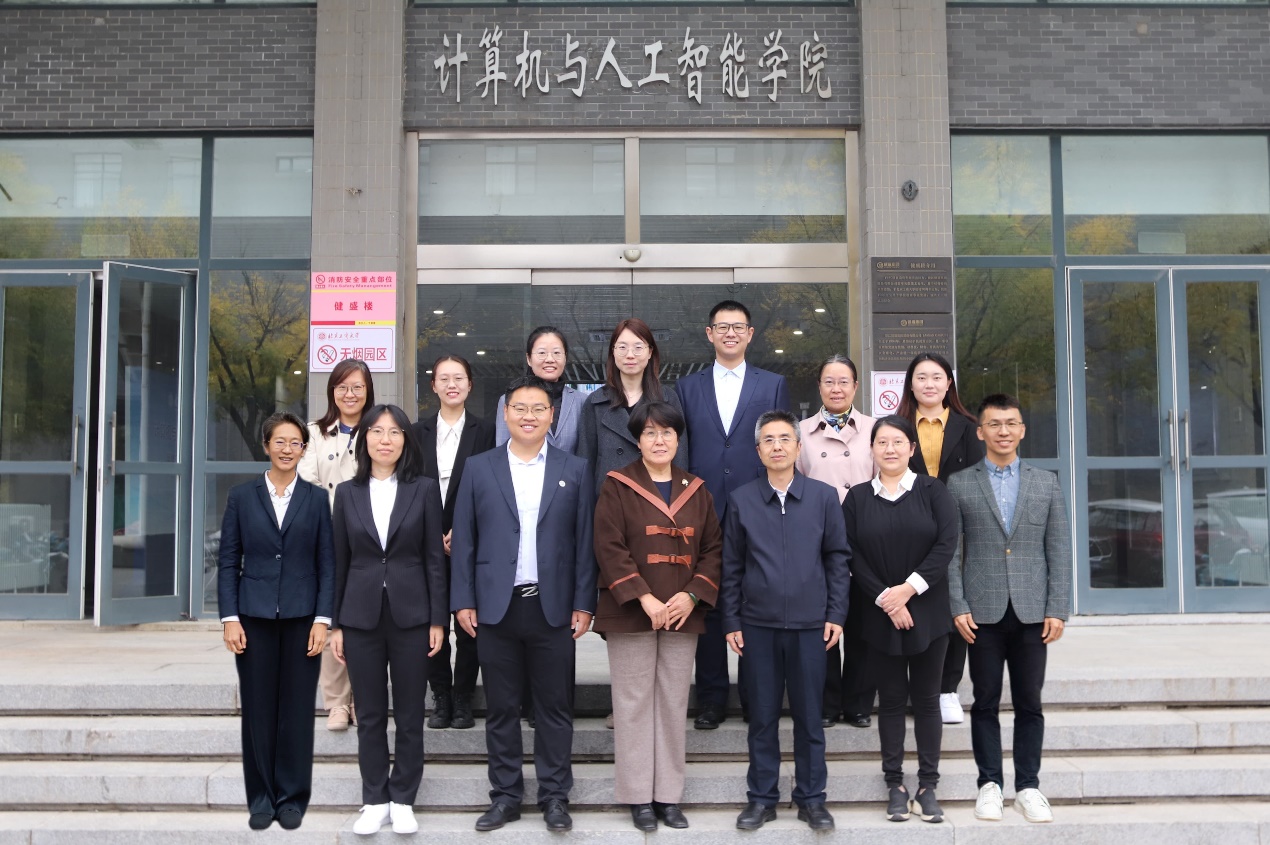
u Objectives
The major’s fundamental task is “cultivating virtue and nurturing talent,” adhering to the university’s overarching goal of fostering high-level innovative talents with both moral integrity and professional competence. It actively aligns with national strategies such as the capital’s “four centers,” the construction of high-end, precise, and cutting-edge industries, the coordinated development of the Beijing-Tianjin-Hebei region, and digital development. The program aims to cultivate high-level innovative talents in the new engineering fields, who are specialized in the intersection of light industry, food, environmental protection, and information technology. These individuals will possess a solid foundation in modern automatic control technology and information technology, and be capable of engaging in the design of automation systems, system integration and development, product research and development, maintenance, and project management. They will be equipped with a sense of social responsibility, professional ethics, and humanistic literacy, and will have the ability to innovate, practical engineering skills, international competitiveness, and the capacity for lifelong learning.
u Faculty
The faculty currently consists of 14 full-time teachers, including 4 professors, 7 associate professors, and 3 lecturers, all of whom are graduate advisors (including 6 doctoral supervisors). Over the past 5 years, they have received nearly 20 provincial and ministerial-level awards, such as the Beijing Municipal Teaching Master, Beijing Municipal Hundred-Thousand-Ten Thousand Talents, first prize in the Basic Teaching Skills Competition for Young Teachers in Colleges, and outstanding instructor and teaching competition awards from the Automation Teaching Steering Committee. They have completed more than 10 educational reform projects, published over 20 papers on educational reform, and led more than 20 national and provincial-level scientific research projects, including the National Natural Science Foundation and the National Key R&D Program (topics). They have successively won the National Science and Technology Progress Award, the first prize of the China Light Industry Federation Science and Technology Progress Award, the second prize of the Beijing Science and Technology Progress Award, the second prize of the China Instrument and Control Society Science and Technology Progress Award, and the China Artificial Intelligence Society Science and Technology Progress Award, among others.
The course "Fundamentals of Electrical Machines and Drives" was recognized as a national first-class undergraduate course in 2023. The major has won two provincial and ministerial-level second prizes for educational teaching achievements in the past five years, such as "Innovation and Practice of Cultivating College Students' Innovative Abilities Based on 'Internet Plus Control Course Cluster Construction'", and six first prizes at the university level. It has been approved for one "14th Five-Year Plan" Beijing Municipal Education Science Planning Project, three Ministry of Education Higher Education Automation Specialty Education Teaching Reform Research Projects, three Ministry of Education Industry-Academia Cooperation Education Projects, and one Ministry of Education Demonstrative Virtual Simulation Experimental Teaching Project. The "Fundamentals of Electrical Machines and Drives" course has been approved as a high-quality undergraduate course in Beijing's colleges and a university-level excellent course.
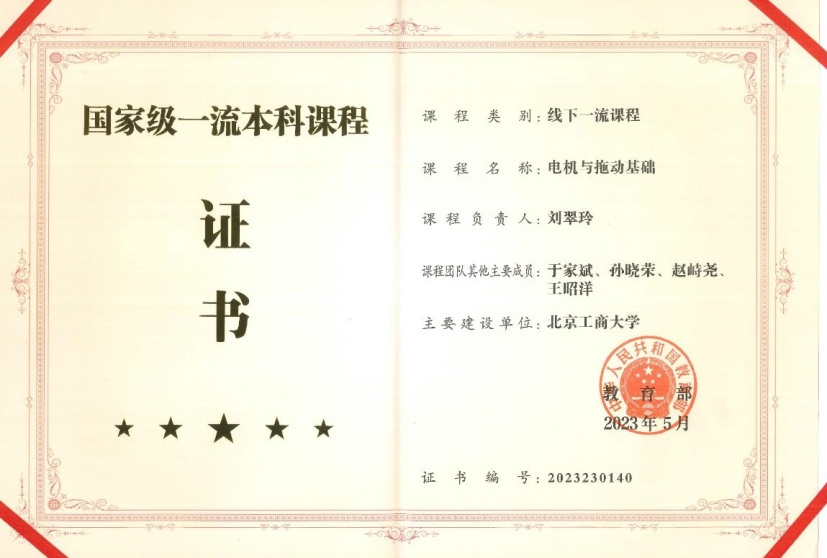
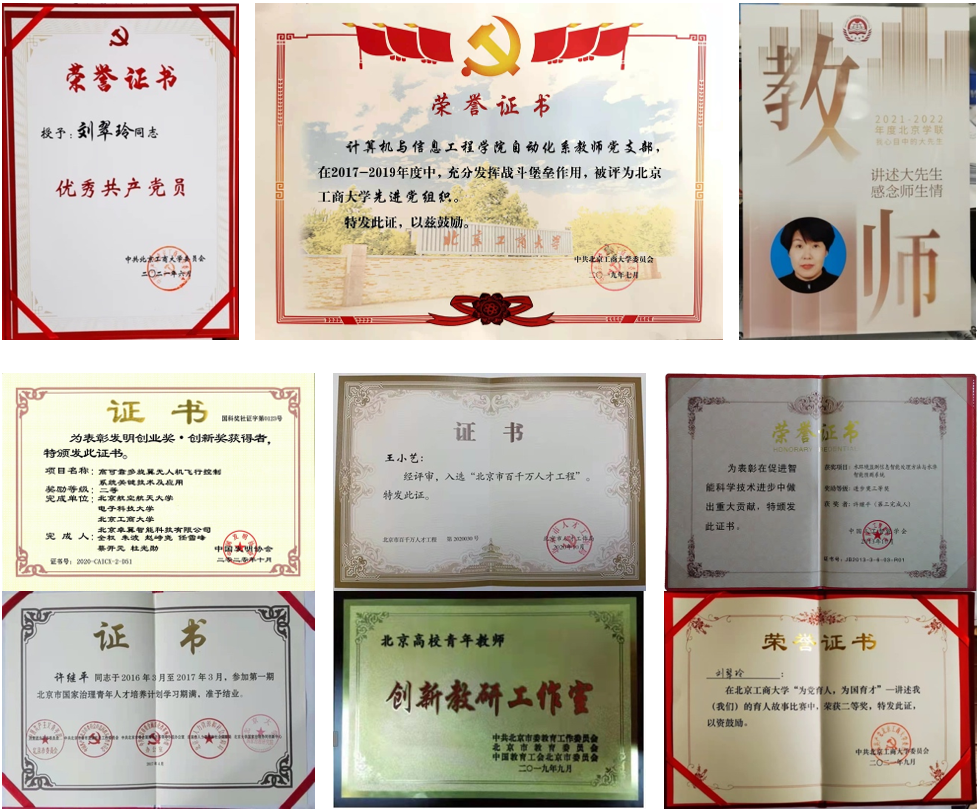
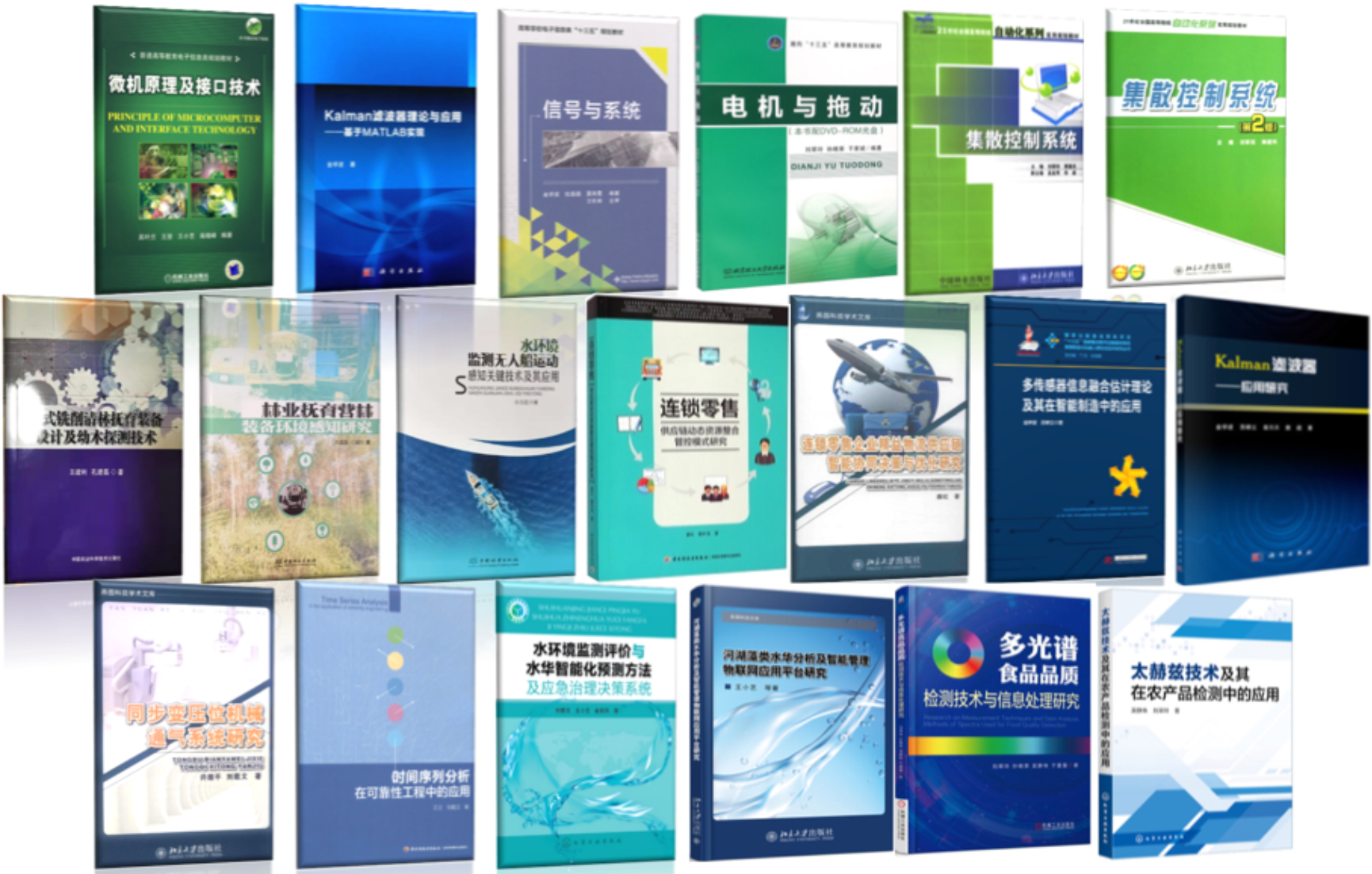
u Features and Advantages
The program is based at Beijing Technology and Business University, which is characterized by its focus on business, light industry, and food sciences, with a multidisciplinary approach that supports and coordinates development across various fields. Leveraging the research strengths of its faculty, the program actively promotes the integration of science and education, fostering a symbiotic relationship between teaching and research. It relies on robust platform resources such as the Beijing Laboratory for Smart Environmental Protection, the Beijing Key Laboratory for Food Safety Big Data Technology, and the China Light Industry Internet and Big Data Key Laboratory for training directions in environmental intelligence, food informatization, and light industry digitalization.
In alignment with the standards of engineering education professional accreditation, the program has pioneered an innovative talent cultivation system known as the “One Core, One Chain” model—“a university-research-enterprise collaborative education ecosystem centered on the cultivation of comprehensive application capabilities.” Collaborating with research institutes and enterprises in fields such as light industry, environmental protection, food, and commerce, the program has established a joint talent cultivation mechanism. It has crafted a distinctive “experiment-course design-research” practical ability cultivation chain that progresses from basic to advanced, from theory to engineering, from classroom to enterprise, effectively enhancing students’ innovative and practical capabilities.
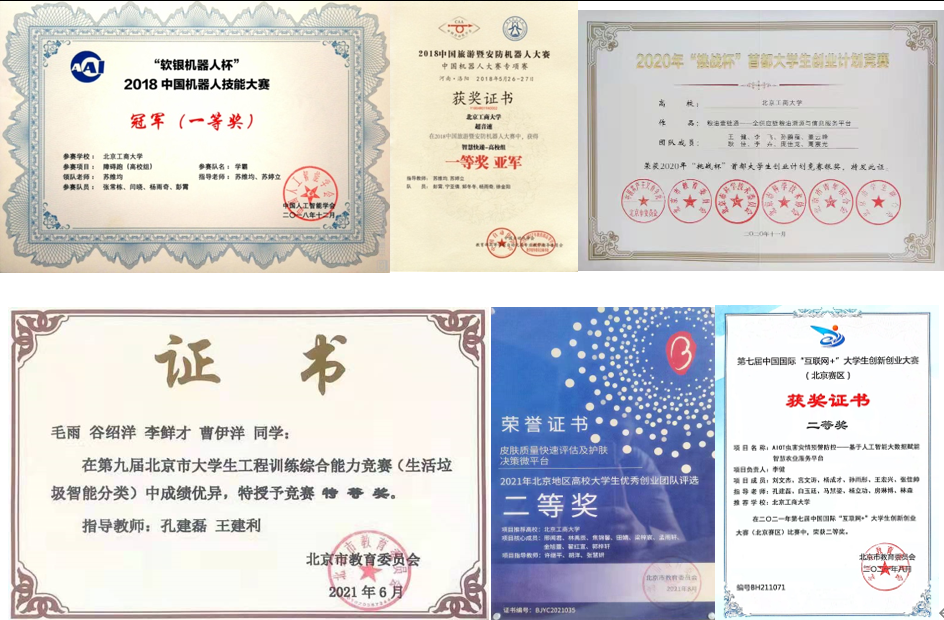
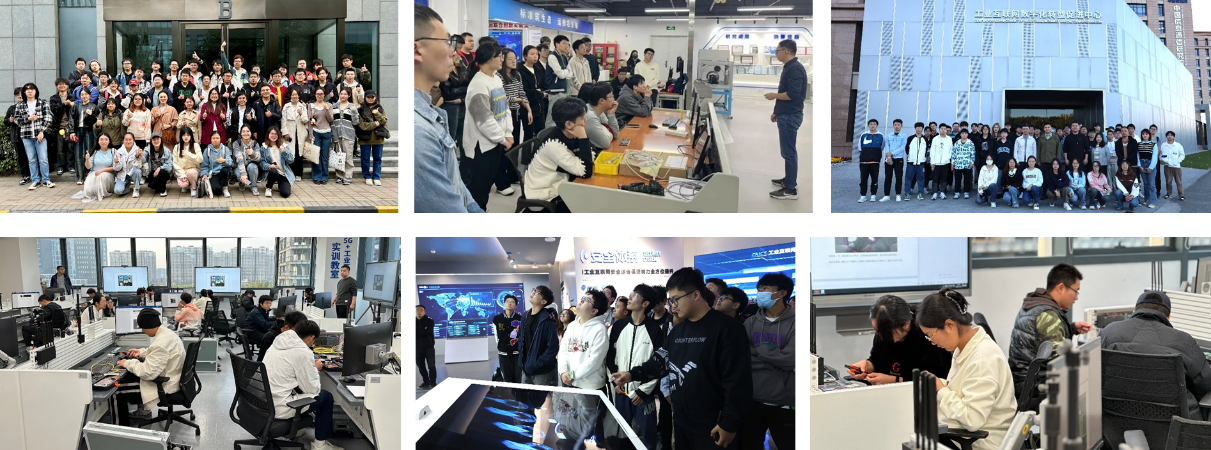
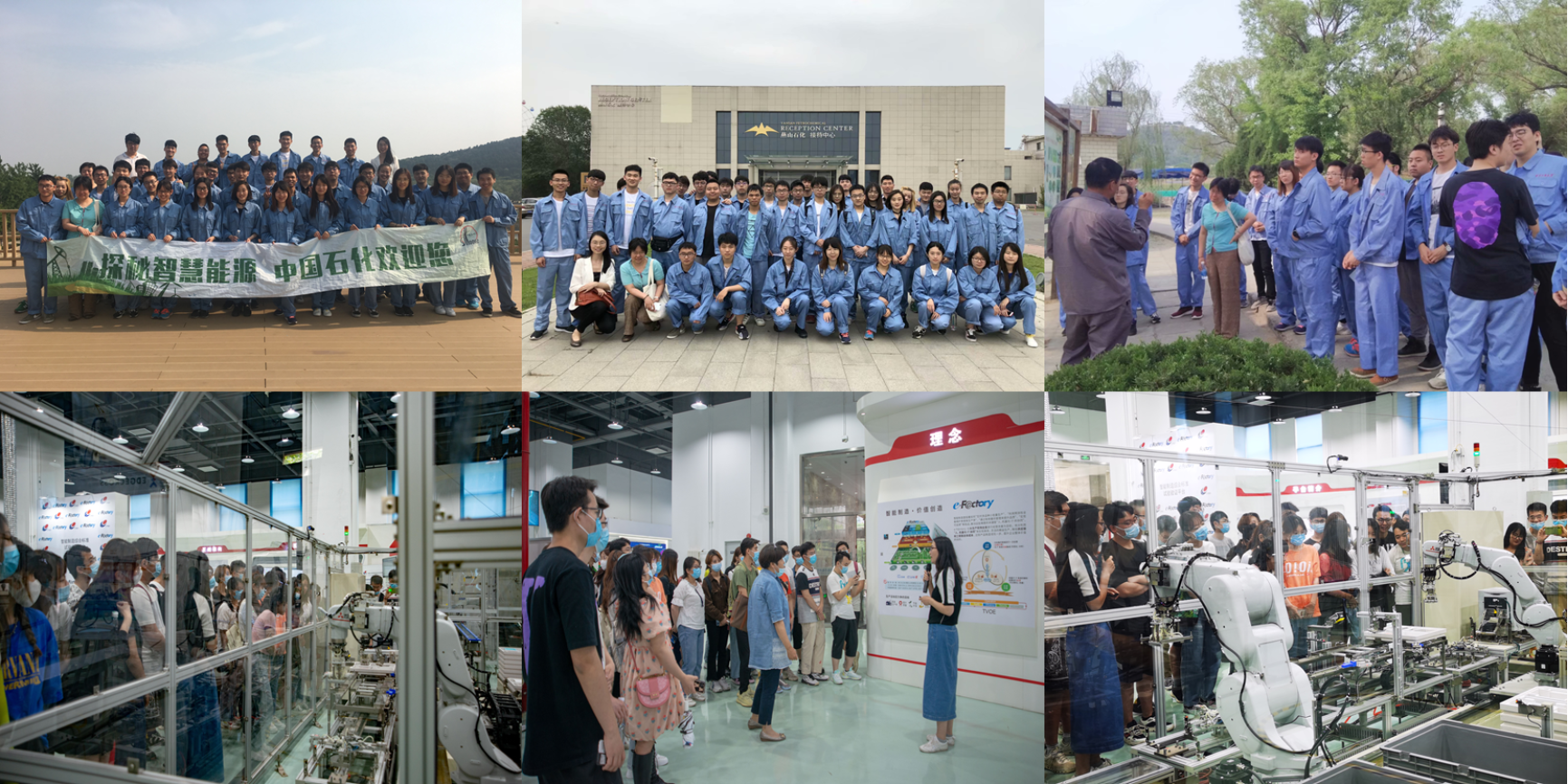
u Main Courses
Automatic Control Theory, Modern Control Theory, Measurement Technology and Instruments, Modern Measurement Technology, Automatic Identification Technology, Signal Analysis and Processing, Electric Motors and Motion Control, Process Control Systems, Computer Control Systems, Principles of Microcomputers and Interface Technology, Principles and Applications of Microcontrollers, Power Electronics, etc.
u Resources
We have undertaken 3 national key R&D projects from the Ministry of Science and Technology in the direction of digital automation for the food industry, and 2 industrial internet innovation and development projects from the Ministry of Industry and Information Technology for integrated circuit intelligent manufacturing, and was approved to establish the Beijing Laboratory for Smart Environmental Protection. Relying on the industrial internet innovation and development projects, an “immersive training platform for the digital automation of the entire supply chain of grain and food” was created; relying on the National Natural Science Foundation projects and the platform of the Beijing Laboratory for Smart Environmental Protection, a “remote intelligent water quality detection experimental device” was developed. Collaborated with entities such as the China Academy of Information and Communications Technology, Aerospace Cloud Network, Yan Dong Microelectronics, and Beijing Wei Shi Yuan, to build a “university-research-enterprise collaborative education ecosystem centered on the cultivation of comprehensive application capabilities,” serving the innovative talent training goals of the major. Established a cooperative relationship with the Department of Automation at Tsinghua University, responsible for building the “Smart Motion” Student Development Center, and deeply cooperate in aspects such as major construction, course teaching, talent exchange, and scientific research cooperation.

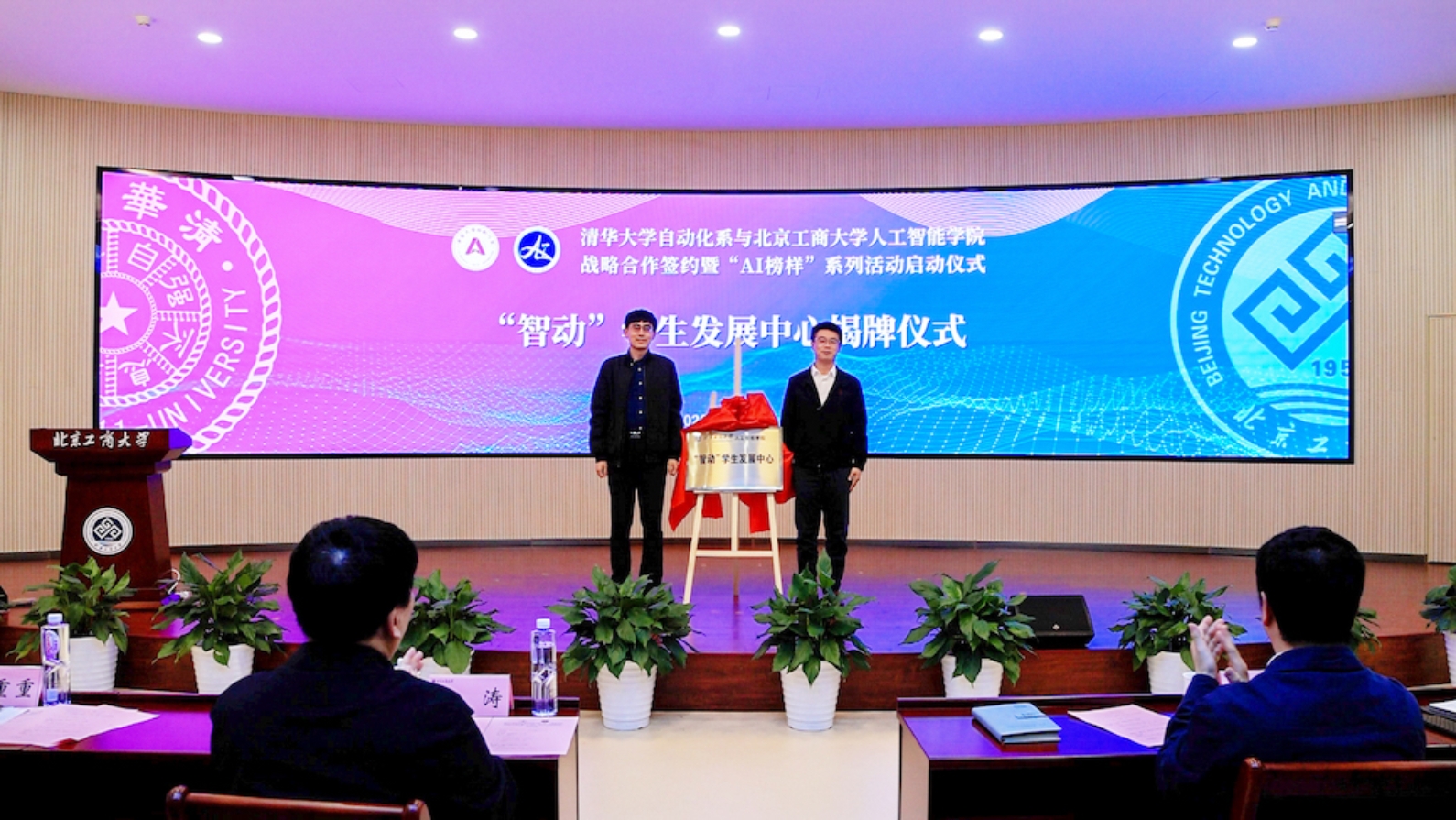
u Employment and Further Education
Graduates of this major have a solid foundation in their field and are characterized by “integrated control” in the modern automation industry, which is distinctive among similar majors nationwide. The employment rate of graduates has always been among the top, with employment units including Beijing’s party and government agencies, universities, research institutes, and other public institutions, as well as large central enterprises, listed companies, well-known foreign enterprises, and commercial banks. Some recent employment units include: China Electronics Technology Group Corporation, China North Industries Group Corporation, Huawei Technologies Co., Ltd., China Mobile Communications Corporation, China United Network Communications Group Co., Ltd., Siemens (China) Co., Ltd., Schneider Electric Co., Ltd., Industrial and Commercial Bank of China, Bank of China, and Agricultural Bank of China, among others.
Due to the international advanced nature of the professional training, the proportion of students from this major who are admitted to graduate programs at renowned foreign universities has been increasing year by year, with the number of successful postgraduate candidates often ranking first in the university. Each year, students are admitted to well-known domestic universities and research institutions such as Tsinghua University, Peking University, Renmin University of China, Hong Kong Polytechnic University, City University of Hong Kong, and the Chinese Academy of Sciences, as well as prestigious foreign universities such as Johns Hopkins University in the United States, University of Michigan, University of Southern California, University of Manchester in the United Kingdom, and University of Sydney in Australia.

